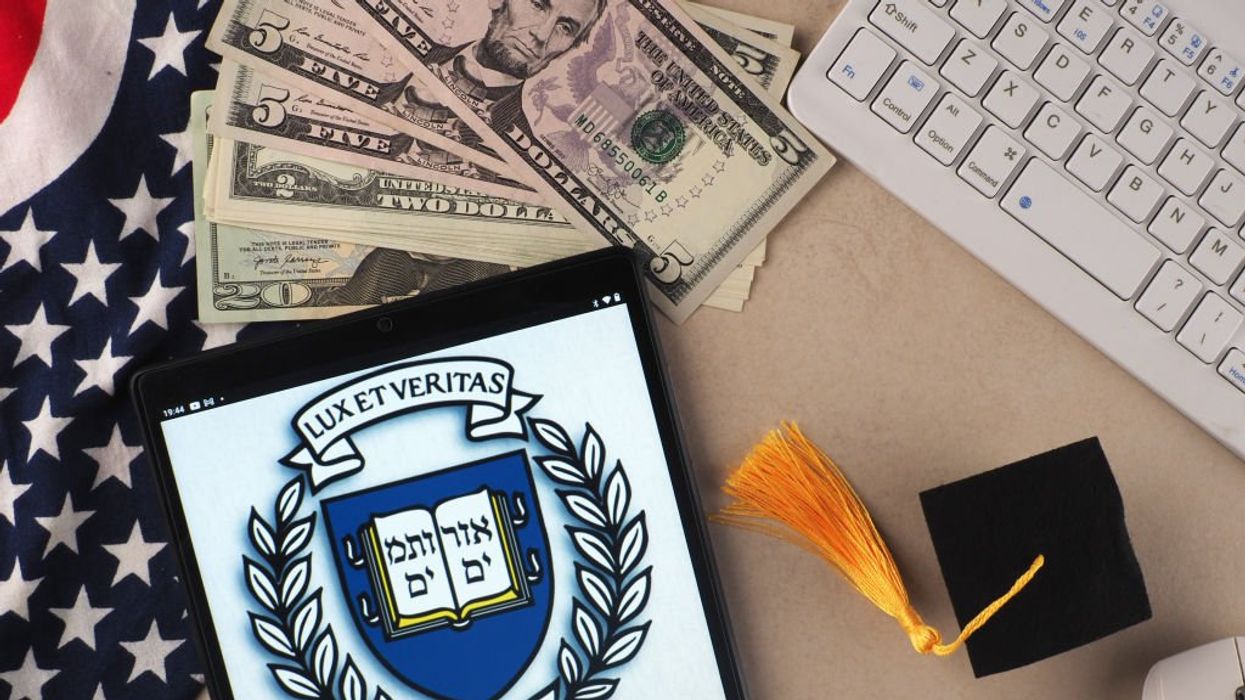
Photo Illustration by Igor Golovniov/SOPA Images/LightRocket via Getty Images

Yale University formally apologized for the school's past ties to slavery, stating that slavery helped erect its oldest building on campus.
In lengthy document from the school's President Peter Salovey, the institution issued an apology, specifically for Yale’s "formative ties" to slavery and the slave trade.
"We recognize our university’s historical role in and associations with slavery, as well as the labor, the experiences, and the contributions of enslaved people to our university’s history, and we apologize," the president wrote. "Yale’s leaders, over the course of our early history, participated in slavery," he added.
The school said it would use what it had learned to address the "effects of slavery in society today," which appears to have resulted in providing money for programs, disseminating race-based historical re-education, and providing postmortem degrees.
Yale's research began in October 2020 and produced a massive catalogue of historical findings on its website.
The school found that although there are "no known records of Yale University owning enslaved people, many of Yale’s Puritan founders owned enslaved people."
The university said it identified over 200 slaves, both black and native American, some of whom "participated in the construction of Connecticut Hall, the oldest building on campus."
"Others worked in cotton fields, rum refineries, and other punishing places in Connecticut or elsewhere, and their grueling labor benefited those who contributed funds to Yale," the school also stated.
Prominent members of Yale were said to have helped prevent the development of a black college in 1831, which "would have been America’s first Black college."
The school also took issue with its own Civil War memorial that honors those who fought for the North and South but does not have "any mention of slavery or other context."
In terms of ongoing commitments to ensure "inclusive economic growth," Yale will "expand educational pathways for young scholars" in its region.
Programs included a fellowship program to help fill at least 80 vacant teaching positions. The program would help aspiring teachers obtain a master's degree in teaching in exchange for working in the local New Haven school system for three years.
The school will also fund the Yale and Slavery Teachers Institute Program, which the school said will help "K-12 teachers in New England meet new state mandates for incorporating Black and Indigenous history" into their lesson plans.
Along with funding for historically black colleges and universities and other law and fellowship programs, the school will award M.A. Privatim degrees to two men who "studied theology at Yale, but because they were Black, the university did not allow them to register formally for classes or matriculate for a degree."
Yale will also transform the aforementioned Connecticut Hall into a "place of healing and communion as the new home for Yale Chaplaincy."
The school will also commission art that is meant for "recognizing enslavement."
Like Blaze News? Bypass the censors, sign up for our newsletters, and get stories like this direct to your inbox. Sign up here!
Andrew Chapados